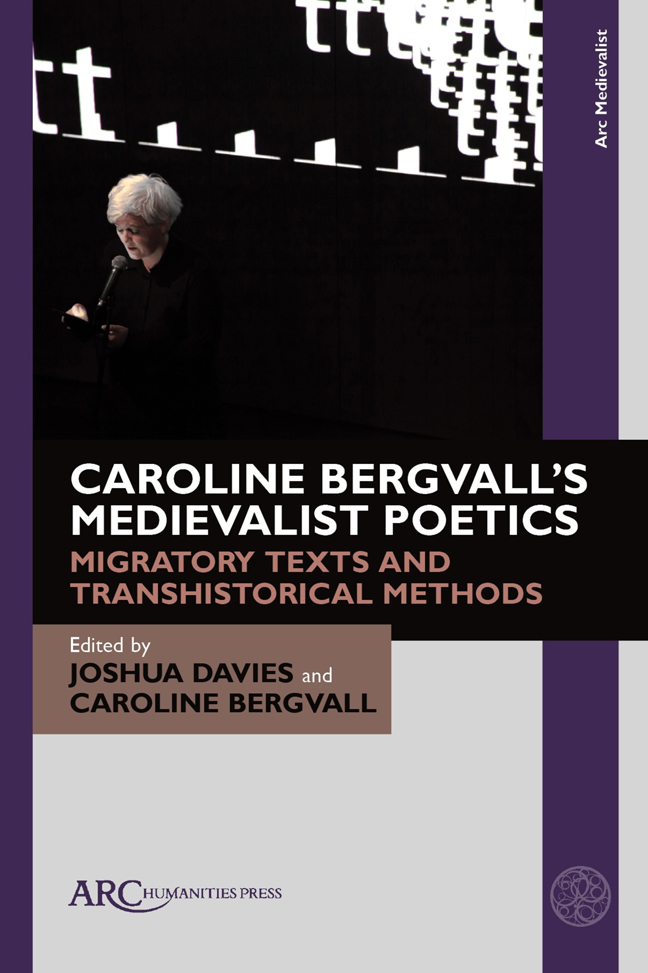Chapter 20 - Bergvall’s Meddling and “Brush up your Chaucer”
Published online by Cambridge University Press: 20 February 2024
Summary
“He speaks in six known and six unknown languages.”
Daniil KharmsWHEN I CAME to University of Pennsylvania in 2003, I had the good fortune to meet David Wallace, the eminent Chaucer scholar. I told Wallace about my plans to start an archive of recordings of poets’ readings of their work, about which he was enthusias-tic. We got to talking about the importance for poetry of accents, the sound of the ver-nacular, and the relation of accents to class. That’s something you can hear in an audio recording, but which is often invisible in alphabetic scripts. (Yud nevuh naw vot thiss so-unds lik tuh meh.) Our conversation turned to the recordings made by scholars and actors of Chaucer’s poetry. Wallace told me he was not happy with the available record-ings, and he offered to make new recordings for us. (You can listen on PennSound; we also recorded an interview).
A few years later, Wallace was preparing for his turn as president of the New Chau-cer Society, organizing a panel called “Contemporary Poets Meet Chaucer.” He asked me to participate and also to recommend someone else. I suggested Caroline Bergvall, who had emerged over the previous decades as one of the most brilliantly inventive poets of our time, with an astonishing performance style. Bergvall turned the often brash pro-jectivism of sound poetry into something introspective and exquisitely subtle, lingering on slight vowel shifts to create an intricately woven acoustic tapestry, which I hear as “liquid sound”: morphemes melt into phonemes in a metamorphic textual fluidity.
Bergvall is an exemplary poet of the ideololectical, the pataquerical, and echopoet-ics, three terms I’ve invented to describe work such as hers. Ideolectical suggests the use of vernacular, or idiolect, in an aesthetically self-conscious way. You can say it’s the artifice of dialect, or a dialectic of dialect. Pataquerical come from Alfred Jarry’s “pata-physics”: it’s weirdnessforitsownsake, or anyway for the sake of inquiry and often querulous queries. Where weird marks strangeness, foreignness, textual fluidity, fak-tura, artifice. Echopoetics is a mix of allusion, sampling, translating/transducing, conjur-ing, and resounding.
Caroline Bergvall’s four “Shorter Chaucer Tales” took up David Wallace’s challenge in a way that made me feel like a flat earther first hearing about Einstein. Bergvall’s Chaucerian transcreation is multilectical, conceptual, ideolectical, sprung-lyric—let’s just say pataque(e)rical—extravaganza.
- Type
- Chapter
- Information
- Caroline Bergvall's Medievalist PoeticsMigratory Texts and Transhistorical Methods, pp. 177 - 182Publisher: Amsterdam University PressPrint publication year: 2023



